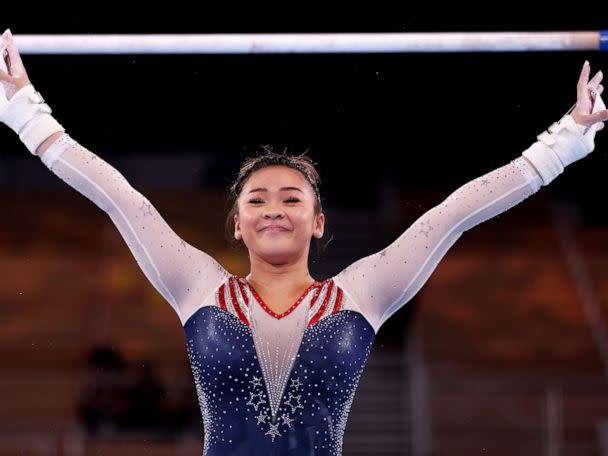Lost in air
In her one, and perhaps only finals performance of these Olympic Games, Biles launched herself into a vault that, once airborne, would require 2 1/2 twists of her body. As she recounted afterward,
it didn't work.
"I was trying a 2 1/2," Biles said, "and I ended up doing a 1 1/2. Just got a little bit lost in the air."
An ocean away, in California, former competitive gymnast Catherine Burns watched and winced.
"I know that feeling so deeply in my body," Burns said, "of being, like, I'm lost, I came out [of the move] too early, where am I? And all of that is happening in the course of split seconds, that recognition of something's not right and I need to be able to complete the trick without injuring myself."
Burns competed through high school in gymnastics and diving. She was nowhere near the elite world Biles inhabits. But anyone who has honed their airborne skills in sport can experience the frightening sensation of suddenly being lost in air.
It's called the twisties.
"You can get it on twisting moves," Burns said, "but you can also get it on any kind of rotational move. [And] you can get lost in the air on a really simple trick that you've done a thousand times before."
Burns said gymnasts, especially elite ones, do so much work to be able to gain muscle memory and awareness of knowing where their body is in the air.
"Having that spatial recognition, being able to see yourself doing the trick, it becomes a point where it's like built into your body," Burns said, "and you do it sort of without thinking about it cognitively. And then sometimes you get these twisties [and] it's sort of like a mental block that some people refer to as if you're starting to cognitively think about [it] again."
Burns likened it to other things we do over and over, with their execution locked into our muscle memory. Similar to walking down a flight of stairs.
"If you think too hard about picking your feet up at the right rate going down the stairs," she said, "and you start to get overwhelmed and you're going to trip over yourself. That's sort of the feeling of, like, thinking too hard or being too aware of something that you shouldn't really have to think about anymore."








